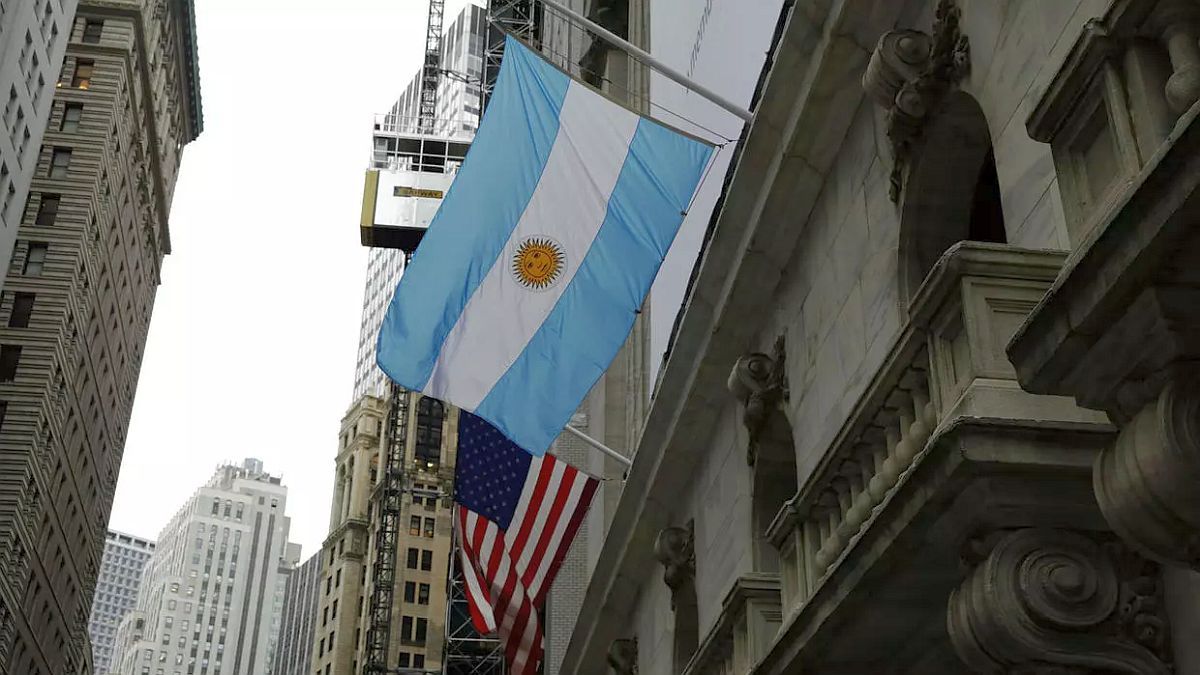The only assets that managed to close in positive territory were Free Market (+12.3%); Cresud (+3.9%); the oil company Vista (+3.5%); and Bioceres (+1.7%). The papers of Marcos Galperin’s company were influenced by the positive readings of its balance sheet, but also by a sudden turn in the North American market, especially of the technology companies -they began the round with falls of up to 3% on average, and ended with rises in the same proportion- after US President Joe Biden announced tough new sanctions against Russia after Moscow launched an all-out invasion of Ukraine. The market was reassured that, for now, there is no armed response.
“The tough stance that the US and Europe are taking is sending a strong message to the financial markets that they are going to try to cripple the Russian economy as much as they can.” said Peter Cardillo, chief market economist at Spartan Capital Securities in New York.
“From one perspective, that’s a positive,” he said, adding that the market sale may not be over. “Going forward, we’re still subject to probably higher oil prices, probably higher commodity prices.”
From SBS, they remarked that “the world markets operated to the rhythm of the news that were arriving from Ukraine, and mainly, they were attentive to the response of the United States, after the Russian military advance in Ukrainian territory.”
In the Buenos Aires stock market, meanwhile, the leading S&P Merval index lost 2.9% to 87,607 points, after gaining 2.1% in the previous three sessions.
The most prominent pullbacks of the day were noted by BBVA (-5.3%); Black Hill (-4.8%); and Transportadora de Gas del Norte (-4.3%).
At the global level, a wave of risk aversion spread after Russian President Vladimir Putin ordered a large-scale invasion of Ukraine, by land, sea and air, in the largest attack of one state against another. in Europe since World War II, risking severe economic sanctions from the West.
In fact, Biden said “severe sanctions” would be imposed on Russia after the attacks, and Europe’s leaders promised to also freeze assets and exclude Russian banks from their financial markets.
The escalation of the conflict rattled financial markets as global stocks tumbled and oil prices topped $100 a barrel but ended below that level. while gold, US government bonds and the dollar, safe havens, closed most higher, in the flight to safety.
Still, the Nasdaq and the S&P500 closed sharply higher, in a dramatic turnaround from earlier in the session, after the US president spoke. The Dow Jones also ended with gains.
After consulting with his peers from the Group of Seven countries, Biden announced measures to impede Russia’s ability to do business in the world’s major currencies, along with sanctions against banks and state-owned companies. The indices, which had dropped earlier in the day on the news of the invasion, reached session highs after Biden’s comments. The Nasdaq lost more than 3% at the opening.
Domestically, for their part, investors are keeping their attention on the progress of the understanding with the IMF regarding the debt. The The Government announced this Thursday that it will send the agreement with the Fund to Congress “imminently” for approvalaccording to spokeswoman Gabriela Cerruti.
Beyond this, there was no encouraging news of the agreement, at a time when the discussion is now about the increase in rates.
Bonds and country risk
In the fixed income segment, the main bonds in dollars registered losses of up to 2.2%, with the Global 2035 and the Bonar 2038 at the top of the falls. It was followed by the Bonar 2035 (-2.1%); and Global 2030 (-2.1%).
For its part, Country risk rose 1.6% (+21 units) to 1,760 basis points, after touching 1,821 points during the day, the highest since the end of January (before the announcement of Argentina’s pre-agreement with the IMF for the debt).
“The Russian thing could be seen coming and now it is taken as a valid excuse, but the fact that the (Argentine) government is delaying the announcement of a closing in its long-awaited agreement with the Fund also compromises the bonds,” explained an operator of foreign private banking.
For its part, the dollar-linked sovereign tranche was in demand, rising 0.5% on average, with better performance in the medium tranche (T2V2 +0.8%).
Finally, bonds in pesos with CER adjustment were in demand and closed with an increase of 0.4% on average, concentrating business on TX22 (+0.35%).
Source: Ambito
David William is a talented author who has made a name for himself in the world of writing. He is a professional author who writes on a wide range of topics, from general interest to opinion news. David is currently working as a writer at 24 hours worlds where he brings his unique perspective and in-depth research to his articles, making them both informative and engaging.




